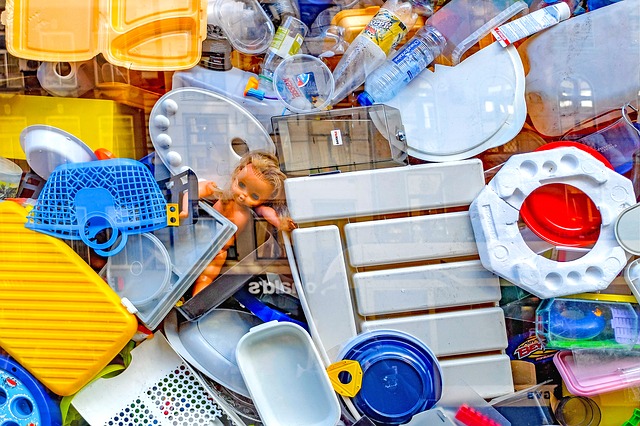The are different types of waste that we generate as a society.
This guide is a quick overview of those types of waste, and also what they each include in terms of different materials.
Summary – The Different Types Of Waste
Main Types Of Waste
There’s really two main waste streams that we have in society – residential/municipal waste, and also commercial/industrial waste
Waste Types Based On Traits & Properties
Within each of the main waste types, the different types of waste based on traits, properties and capability to recycle might be:
Liquid Waste
Solid Waste
Organic Waste
Recyclable Waste
Hazardous Waste
There’s many other sub-waste categories, but the above captures most types of waste we generate.
We also put together a guide on waste pollution that details these different types of waste, and wikipedia.org has a more extensive list of waste types in their resource
Main Ways Of Managing Waste
There can be different ways of managing the different types of waste we produce.
Landfill, incineration, recycling, and composting are some of the main ways, but special waste like hazardous waste might be managed differently.
The approach taken to waste management across society depends on different variables and factors.
What Are The Different Types Of Waste, & What Do They Include?
– Liquid Waste
Waste that come in liquid form
Some of the main examples of liquid waste are storm water, waste water/grey water, and wash water
– Solid Waste
Any solid waste that is not organic, recyclable or hazardous.
Can include paper and paperboard, glass, metals, plastics, yard trimmings, food, wood, rubber and leather, textiles, miscellaneous inorganic waste and other types of waste
When talking about commercial and industrial waste, construction and demolition, as well as mining waste might be included in solid waste material
– Organic Waste
Organic waste mainly comes from plant and animals sources
Food waste from vegetables, fruit, meat are common examples
Organic waste can also come from outdoor sources though, such as yard trimmings, gardening waste, and so on
Organic waste can usually be composted as it’s mostly biodegradable
– Recyclable Waste
Recyclable waste is waste that can be turned in to recycled content/material, or waste that materials can be recovered from (such as metal from e-waste)
Aluminum items like soda cans and food cans, metals like steel are common examples of recyclable waste
Other examples may include some plastics (rigid plastics), some paper and cardboard (white paper, newspaper, brown paper and cardboard), and some glass bottles
We’ve previously put together a guide about the materials with the highest recycling rates
– Hazardous Waste
Hazardous waste generally includes waste that is flammable, reactive, corrosive or toxic.
Some specific examples of hazardous waste include water reactives, cyanides, explosives, unstable chemicals, heavy metals, pesticides, fluorescent light bulbs, some specialty batteries (e.g. lithium or lead containing batteries), cathode ray tubes, mercury-containing devices and so on.
Universal hazardous wastes, household hazardous wastes, biomedical and clinical hazardous waste, industrial hazardous waste, as well as special hazardous waste (includes radioactive waste, explosive waste, and electronic waste) – are all other categories of different hazardous wastes.
Sources
1. https://4waste.com.au/rubbish-removal/5-types-waste-know/
2. https://www.bettermeetsreality.com/waste-pollution-causes-sources-effects-solutions/
3. https://www.bettermeetsreality.com/how-much-food-do-we-waste-lose-around-the-world-every-day-every-year/
4. https://www.bettermeetsreality.com/most-common-types-of-waste-found-in-landfills/
5. https://en.wikipedia.org/wiki/List_of_waste_types
6. https://www.eschooltoday.com/waste-recycling/types-of-waste.html
7. https://www.epa.gov/facts-and-figures-about-materials-waste-and-recycling/national-overview-facts-and-figures-materials
8. https://en.wikipedia.org/wiki/Hazardous_waste#Universal_wastes
9. https://www.fss.txstate.edu/ehsrm/safetymanual/hazardwast/typeshazwst.html
10. https://en.wikipedia.org/wiki/Waste#Types
','' ); } ?>